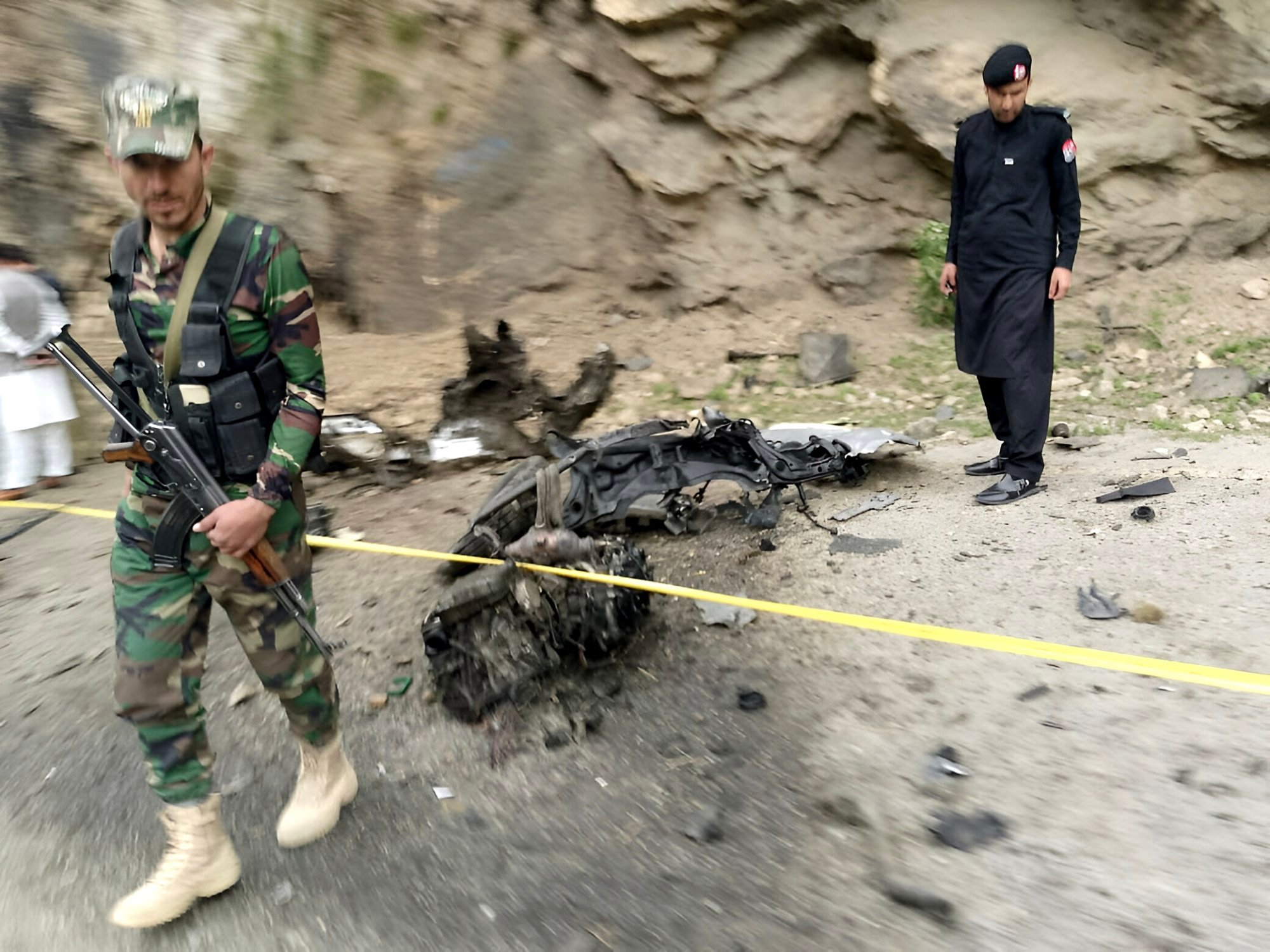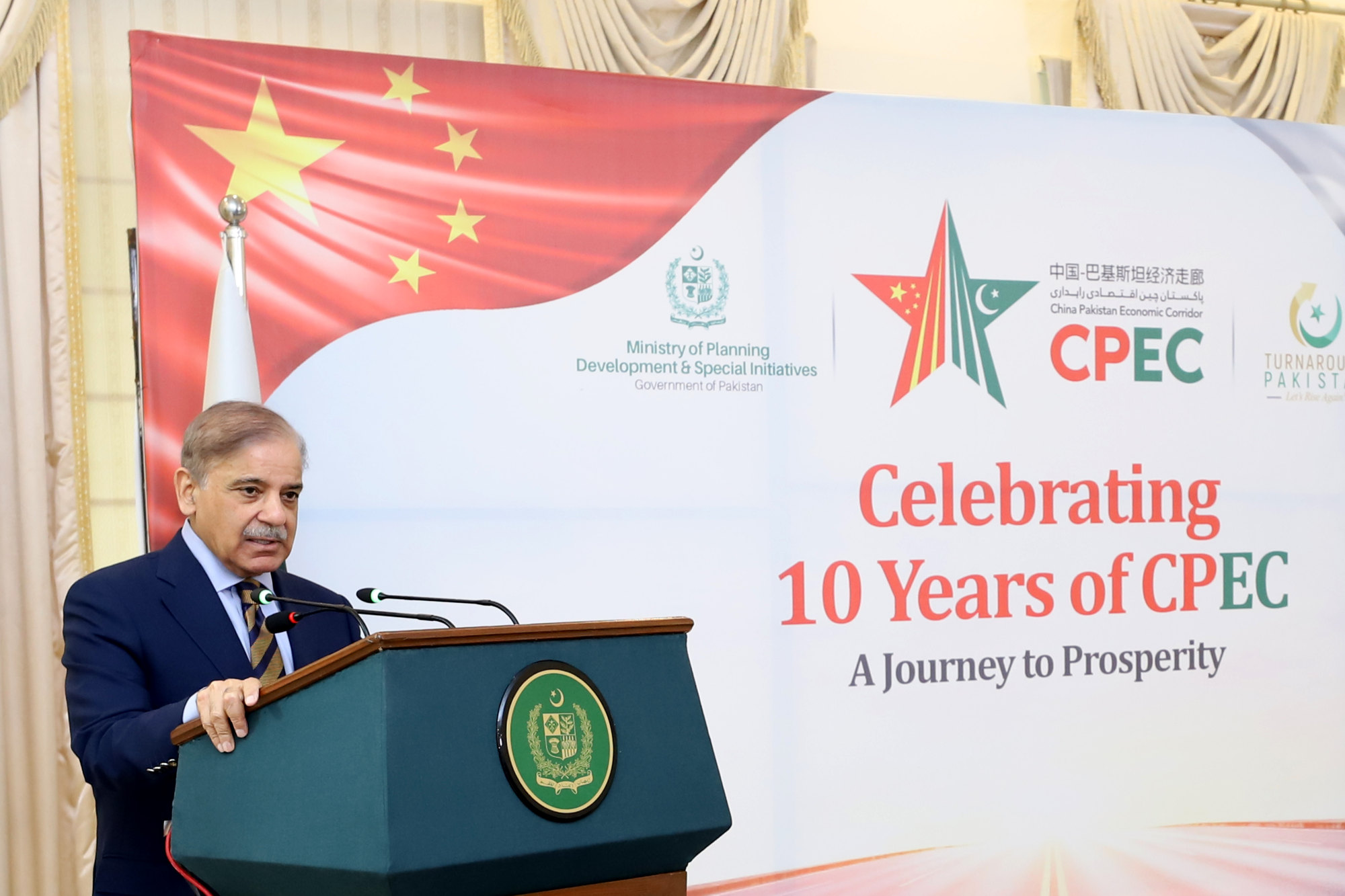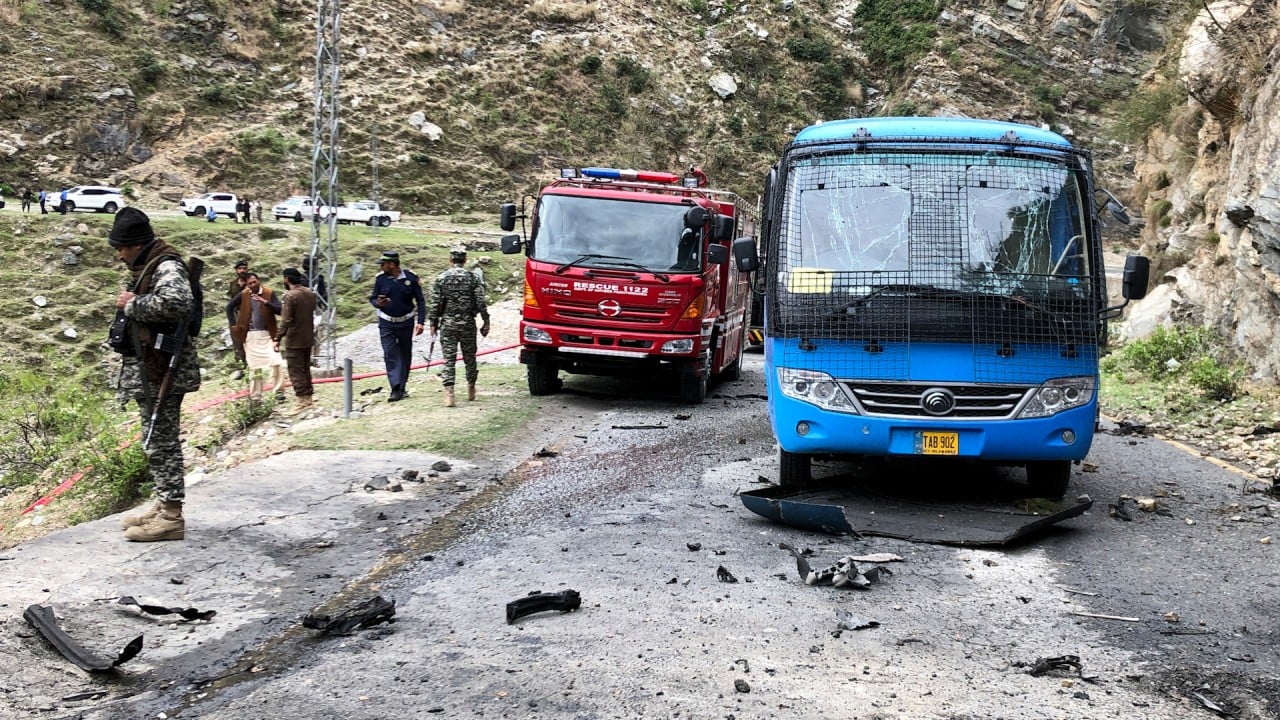The China-Pakistan Economic Corridor (CPEC) – estimated to be worth US$62 billion by the Brookings Institution – is the most high-profile symbol of bilateral cooperation between the two nations. However, a surge in attacks against Chinese nationals building plants and elsewhere in Pakistan in recent years has cast a shadow on the CPEC.
Launched in 2015, the 15-year project aims to connect the Pakistani port of Gwadar with the Chinese city of Kashgar through a network of highways, railways, and energy projects and stimulate growth in Pakistan’s economy across sectors from manufacturing to tech.
During his visit from Monday, Dar will co-chair the fifth Pakistan-China Foreign Minister Strategic Dialogues with China’s Minister of Foreign Affairs Wang Yi and discuss economic and other partnerships.
Over the past few years, a series of deadly attacks have targeted Chinese nationals linked to the CPEC and Pakistani security installations.
“Chinese concerns on the safety of their nationals in Pakistan are very much legitimate,” former foreign minister Khurshid Mahmood Kasuri told This Week in Asia.
“We have to do much more than what we have done for their security.”

Among the notable incidents were the attack on the Chinese consulate in Karachi, Pakistan’s financial hub, in 2018 and an assault in 2020 on the Pakistan Stock Exchange, in which Chinese entities hold a 40 per cent stake.
In 2022, the Karachi University’s Confucius Centre, a Chinese language and cultural centre, was the target of a suicide bombing that killed three Chinese teachers and a Pakistani national.
The attacks were attributed to separatist factions including the Balochistan Liberation Army (BLA) and other ethnic Baloch and Sindhi insurgent groups that vehemently oppose the CPEC, perceiving it as a threat to their identity and fearing that its success would turn them into a minority.
The series of attacks in recent years has caused a strain in relations between China and Pakistan and prompted calls for Islamabad to tighten security at industrial sites where Chinese workers are based.
Jiang Zaidong, the Chinese ambassador to Islamabad wrote in a local publication about the “heart-wrenching” terrorist attack that caused the deaths of the Chinese nationals. “We should do everything possible to protect their safety and value their contribution [to CPEC].”
“That attack shows destabilising external factors against the CPEC, whereas Baloch insurgents from the left wing are said to have backing from external elements,” said Muneeb Salam, a research associate at the China Pakistan Study Centre of the Institute of Strategic Studies, referring to Islamabad’s accusations of the involvement of groups linked to India and Afghanistan in the attack.
Since the launch of the CPEC, thermal and hydropower plants with a combined capacity of around 16,700 megawatts have been built by Chinese companies across Pakistan and helped the country address its energy shortages.
However, Pakistan’s large budget deficit and poor balance of payments could slow progress in the CPEC and threaten to edge the country towards defaulting on its payment obligations under the project.
Pakistan owes a staggering 2000 billion rupees (US$7.2 billion) to its Chinese partners for CPEC-related debts – a heavy burden on a nation with only US$14.5 billion in foreign exchange reserves.

“Rolling over and negotiating concessions on that front won’t be a smooth sail for Pakistan,” said Asif Ali Qureshi, chief executive of Optimus Capital Management.
Dar’s visit is expected to focus on several goals under the next phase of the CPEC, including establishing special economic zones in Pakistan’s four provinces and modernising its agricultural sector.
Pakistan will need to focus on CPEC developments with commercial viability and improve its capability to attract foreign investors, Qureshi said.
Kasuri said that one of the key planks of Pakistan’s foreign policy is its “steadfast commitment to China”. As such, Pakistan should not be forced to choose a side in the US-China rivalry.
He added: “Being a sovereign state, we must get along with both global powers while prioritising our national interests.”


